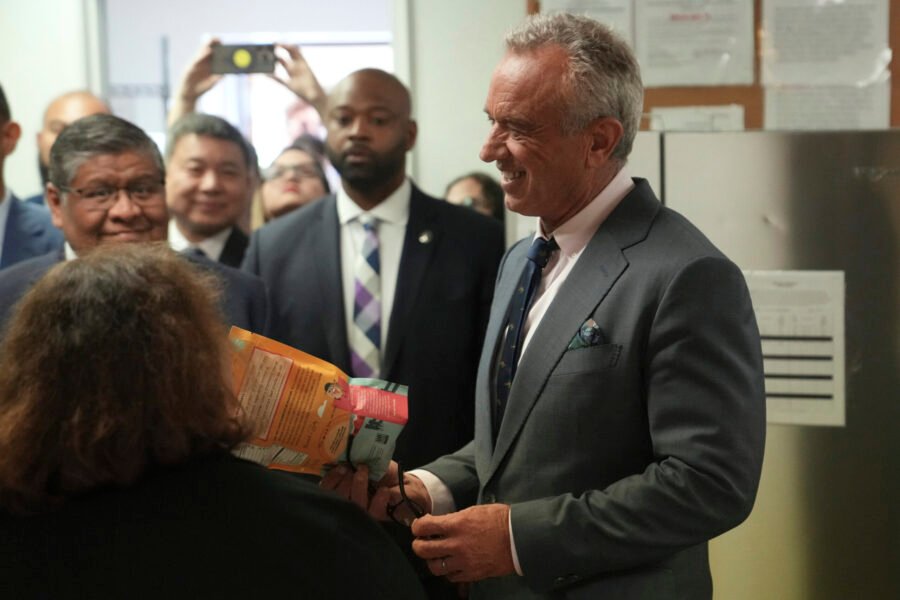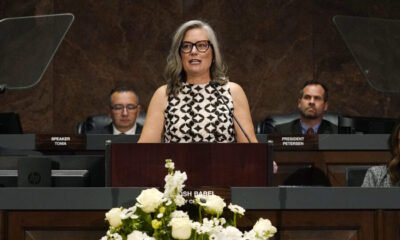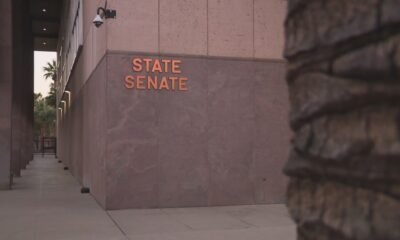Featured News
Kennedy Jr. Cheers Arizona’s Bold Move to Eliminate Processed Foods and Sodas

U.S. Secretary of Health Services Robert F. Kennedy Jr. engaged with Arizona lawmakers today, celebrating the recent passage of two significant health-related bills. These measures align with his Make America Healthy Again initiative and have sparked bipartisan interest.
The legislature approved a bill aimed at removing ultraprocessed foods from school lunches, as well as a predominantly Republican-backed proposal to exclude sodas from the Supplemental Nutrition Assistance Program (SNAP). Both bills are now awaiting Governor Katie Hobbs’ decision.
Despite unanimous approval of the school lunch bill, it lacks proposed funding to cover additional costs for students enrolled in the free and reduced-price lunch program. Democrats expressed significant opposition to the SNAP soda exclusion during the Senate’s final vote.
However, supporters of the bills, including Rep. Leo Biasiucci and Senate Majority Leader Janae Shamp, emphasized their potential as initial steps in a broader push against processed and sugary foods in public institutions. “It’s happening at the grassroots. People are saying we are not going to take it anymore,” Kennedy stated, framing the legislative efforts as a necessary response to public health concerns.
House Bill 2164 specifically bans schools from serving or selling ultraprocessed foods, which include various artificial additives and preservatives. Schools would need to adhere to this mandate while confirming compliance with the Arizona Department of Education.
If enacted, the bill would take effect during the 2026-2027 school year. Melissa Harvey, from the School Nutrition Association of Arizona, noted that many schools already adhere to stringent USDA standards, making compliance manageable. She indicated that condiments and specific snack items might see the most significant changes.
While Democrats have shown initial support for the legislation, concerns remain about the absence of a necessary $3.8 million appropriation aimed at addressing the needs of students qualifying for reduced-price lunches. This funding proposal, introduced in a separate bill by Rep. Nancy Gutierrez, did not progress to a final vote, despite garnering little opposition earlier in the legislative process. “Feeding students is essential to making America healthy,” Gutierrez remarked, underscoring the need for comprehensive support for school nutrition.
The second bill, House Bill 2165, is a more controversial measure that seeks to eliminate soda from SNAP by obtaining a waiver from the USDA. It faced opposition from Democrats, who argue that such restrictions micromanage recipients’ choices within the program. Sen. Analise Ortiz cited the risk of increased governmental control over purchasing decisions for vulnerable populations. The potential for future regulations on other processed foods looms large, with Biasiucci’s original proposal having aimed to include candy but faced challenges in defining it legally.
Despite these complexities, both Biasiucci and Kennedy remain committed to pursuing changes aimed at improving public health over the coming years. “We have to start somewhere,” Kennedy concluded, acknowledging the incremental nature of systemic health improvements.
As the governor considers these proposals, the implications for Arizona’s public health policy hang in the balance.

















